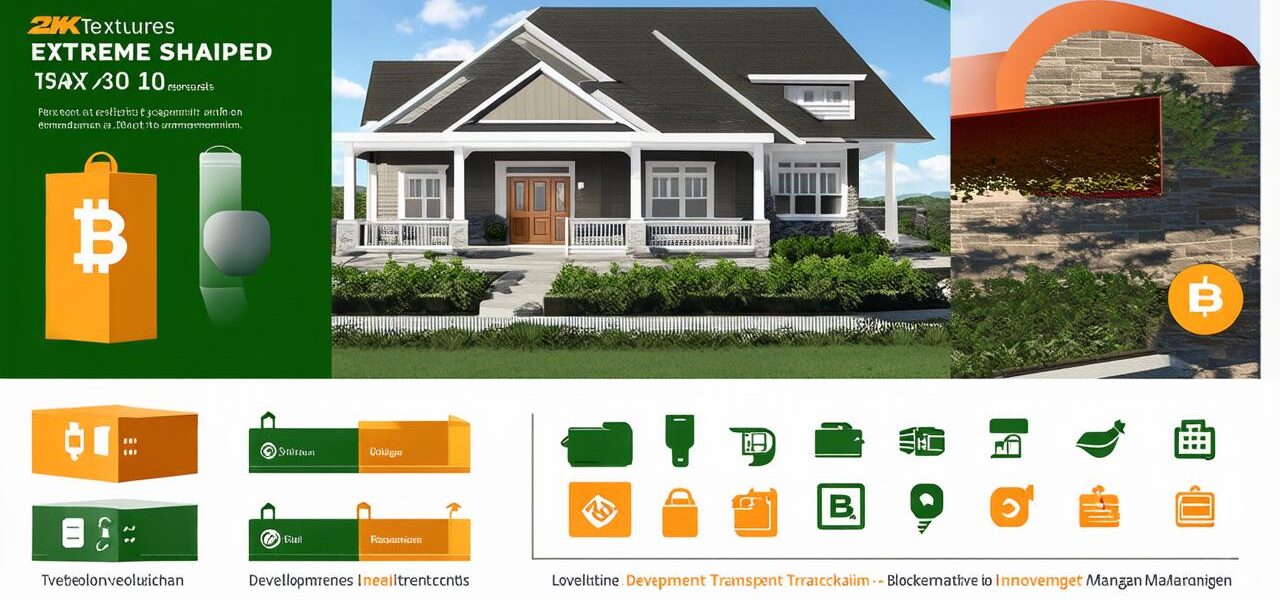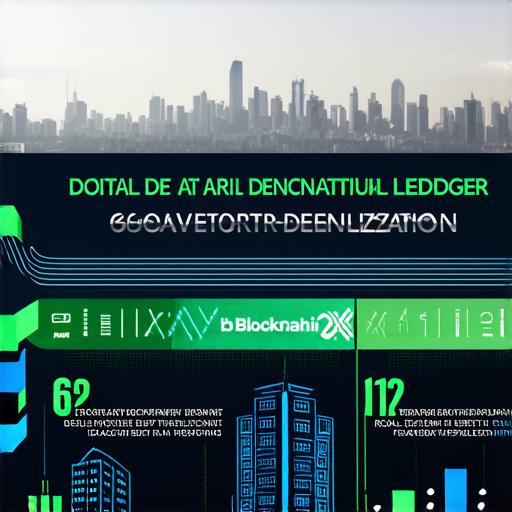
How is Blockchain Revolutionizing Real Estate Development?
Blockchain Technology and Real Estate Development
Blockchain technology has been gaining popularity in recent years as a decentralized digital ledger that provides secure and transparent record keeping of transactions. The technology was initially designed for financial transactions but has now found applications in various industries, including real estate development.
Smart Contracts and Real Estate Transactions
One of the main benefits of blockchain technology in real estate development is the ability to create smart contracts. Smart contracts are self-executing digital contracts with the terms of the agreement between buyer and seller being directly written into lines of code. They have the potential to revolutionize real estate transactions by automating and simplifying them. For example, a smart contract can be used to automatically transfer ownership of a property once certain conditions are met, such as payment of the purchase price or compliance with environmental regulations.
Tokenization and Crowdfunding in Real Estate Development
Another application of blockchain technology in real estate development is tokenization. Tokenization involves dividing an asset into smaller units, called tokens, that can be bought and sold on a blockchain platform. This enables real estate developers to raise capital more efficiently and at a lower cost than traditional financing methods.
Crowdfunding is another application of blockchain technology in real estate development. It allows small investors to invest in real estate projects and receive rewards based on the success of the project. Crowdfunding platforms use smart contracts to automate the investment process, ensuring that all parties involved have a clear understanding of their rights and obligations.
Immutable Ledger and Transparency
Blockchain technology provides an immutable ledger, a digital record of all transactions that cannot be altered or deleted. This provides transparency and accountability in real estate transactions, as all parties involved can access the same information. For example, a blockchain-based land registry system can provide real-time information on ownership and property status, reducing fraud and disputes.
Supply Chain Management and Traceability
Blockchain technology can be used to improve supply chain management in real estate development by providing transparency and traceability of materials and construction processes. For example, a blockchain-based system can track the origin and movement of building materials, ensuring that they meet quality and safety standards. This can also help to reduce waste and improve sustainability.
Case Studies
There are several case studies demonstrating the potential of blockchain technology in real estate development. One example is the City of West Sacramento in California, which is using a blockchain-based land registry system to improve transparency and reduce fraud. The system allows property owners and buyers to access real-time information on ownership and property status, reducing the need for intermediaries and improving efficiency.
Another example is the development of the “Bitcoin City” in Texas, which will be built entirely using cryptocurrencies. The city will use blockchain technology to manage land registry, construction processes, and utilities, providing transparency and accountability throughout the development process.
Future of Blockchain in Real Estate Development
The future of blockchain technology in real estate development is promising, with many potential benefits. However, there are also challenges that need to be addressed, such as regulatory uncertainty and interoperability issues between different blockchain platforms. As the technology continues to evolve, we can expect to see more innovative applications in real estate development, improving efficiency, transparency, and sustainability.
FAQs
1. What is blockchain technology?
Blockchain technology is a decentralized digital ledger that records transactions securely and transparently. It was initially designed for financial transactions but has now found applications in various industries, including real estate development.
2. How does blockchain technology enable smart contracts?
Blockchain technology enables the creation of self-executing digital contracts with the terms of the agreement between buyer and seller being directly written into lines of code. Smart contracts have the potential to revolutionize real estate transactions by automating and simplifying them.
3. What is an immutable ledger in blockchain technology?

An immutable ledger is a digital record of all transactions that cannot be altered or deleted, providing transparency and accountability.
4. How can blockchain technology improve supply chain management in real estate development?
Blockchain technology can provide transparency and traceability of materials and construction processes, reducing waste and improving sustainability.
5. What are some case studies demonstrating the potential of blockchain technology in real estate development?
Examples include the City of West Sacramento’s blockchain-based land registry system and the development of the “Bitcoin City” in Texas.
6. What are the challenges associated with blockchain technology in real estate development?
Challenges include regulatory uncertainty and interoperability issues between different blockchain platforms.
7. What is the potential future of blockchain technology in real estate development?
The potential future of blockchain technology in real estate development includes more innovative applications that improve efficiency, transparency, and sustainability.



